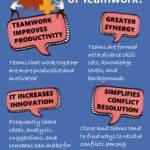
Play the Two Dollar Game
The two dollar game has become one of the most popular negotiation exercises and can be a lot of fun for a team of new employees. It originated at MIT and only requires 6 to 10 people to play.
Round 1
Pair them up at random and tell them they have $2 to split. One person’s job is to try to negotiate for as much of the $2 as possible.
The other people will be told – in secret – to aim for one of the following total amounts, if not more:
- $00.50
- $00.80
- $1.00
- $1.30
- $1.60
Pairs then have 10 minutes to negotiate. Tell them there will be three total rounds and they’ll have new partners for each one.
Round 2
Give everyone a new partner and give one of the following instructions to each pair (again, in secret):
- One person can say anything they want to get as much of the $2 as possible. The other person doesn’t actually need to reach a settlement. Tell them they’ll have another chance to negotiate with a new partner in the next round.
- One person is to play the role of a ruthless negotiator. The other person is told they’ll never see this ruthless negotiator again, but everyone they know is waiting to see how well they’ll do. They can say anything they want to get as much of the $2 as possible.
- One person is told that the other in the pair is untrustworthy. The second person is told that their main goal is to reach some kind of agreement, even if it means accepting less than half of the $2.
- One person is directed to say as little as possible. Their partner is told that the other person responds extremely well to questions.
- One person is told to be firm and create tension. The other is told that their reputation is at stake and will be decided based on their actions during the negotiation and the outcome they get.
Round 3
Despite the fact that people will think they’re to switch partners again, they’ll actually keep the same one. There are no secret instructions, either. Players can use any strategy they want.
The reason for this “twist” is to demonstrate why it’s so important to find mutually-beneficial outcomes. If you try working for win-lose, it’s going to eventually come back and bite you.
Players who were “tough” or allowed to say whatever they wanted will now have to win over a partner who just got done dealing with that mentality for 10 minutes.
The topics of this publication: interactions, negotiation, argumentation, make agreements, collaboration, adaptability skills


